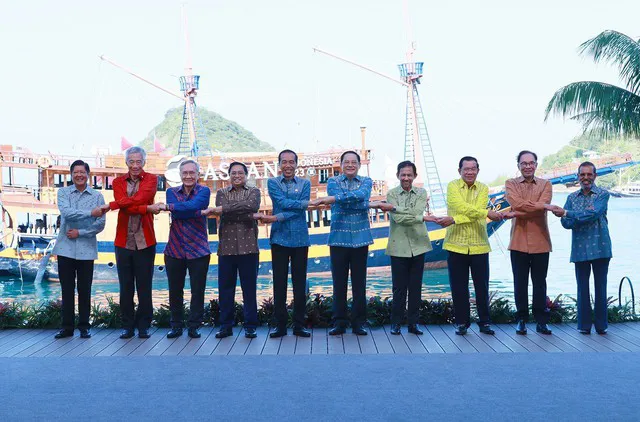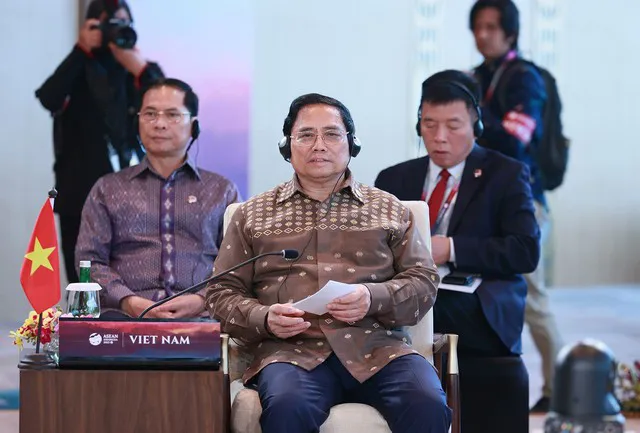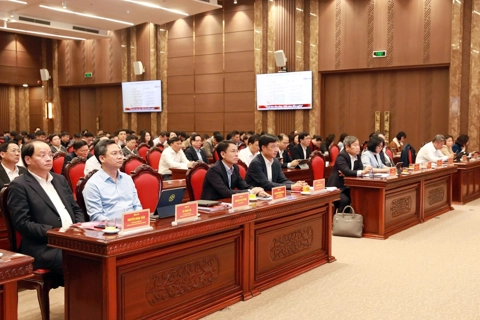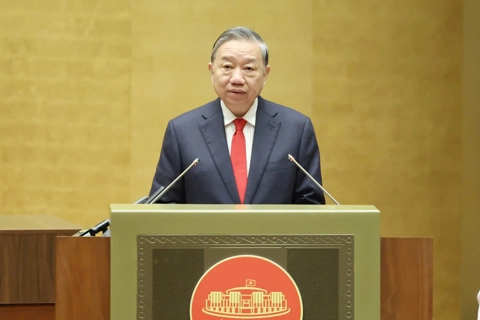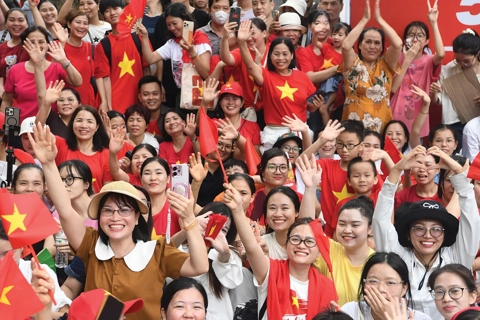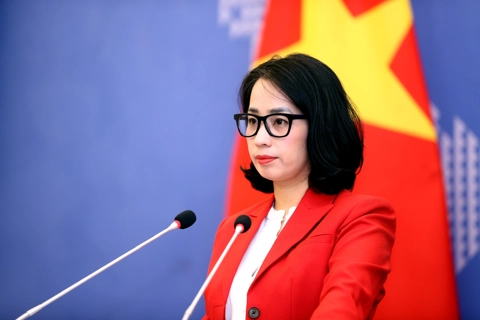ASEAN needs to reaffirm strategic value amid superpower struggle: PM
The Prime Minister stressed the importance of a sense of responsibility and collective spirit among ASEAN member states towards the common goal and the balancing of national interests with the bloc's interests.
ASEAN should be able to adapt and enhance its own capabilities in order to maintain its strategic relevance and value amid intensifying great power strategic competition.
| ASEAN leaders at the Retreat Session. Photos: Nhat Bac/VGP |
Prime Minister Pham Minh Chinh made the remarks today [May 11] at the Retreat Session of the 42nd ASEAN Summit in Labuan Bajo, Indonesia, where regional and international issues of mutual concern were discussed.
Chinh noted that ASEAN is currently facing unprecedented challenges and intense strategic competition from major powers, while at the same time being the focus of various regional connectivity initiatives.
"It is, therefore, crucial for ASEAN to adapt dynamically and strengthen its own capabilities to assert its strategic value," Mr. Chinh said, noting that this can be achieved by fostering unity and solidarity, promoting independence and self-reliance, upholding its central role, maintaining a strategic balance in partnerships, and cultivating a culture of dialogue, cooperation, consultation, and confidence-building.
The Prime Minister expected ASEAN to uphold its principles on issues related to its security and development as enshrined in key documents such as the ASEAN Charter, the Treaty of Amity and Cooperation in Southeast Asia (TAC), and the ASEAN Indo-Pacific Perspectives (AOIP), with particular emphasis on respect for international law.
In his assessment of the current international and regional situation, Chinh highlighted the growing strategic competition among major powers. He stressed the importance for ASEAN member states to foster a sense of responsibility and collective spirit towards the common goal, balancing national interests with the interests of the bloc.
| PM Chinh at the session. |
He reiterated ASEAN's principled stance on regional and international issues of common concern, particularly the protection of peace, stability, security, safety, and freedom of navigation in the East Sea (referring to the South China Sea), which he stressed was a shared responsibility of all countries.
For Myanmar, the Prime Minister noted the importance of ASEAN's consistent support for the full implementation of the Five-Point Consensus for the benefit of the Myanmar people and for ASEAN's solidarity, prestige, image, and expectations of the international community.
It is essential for ASEAN to maintain an objective, balanced, and responsible approach to the Russia-Ukraine issue while coordinating with its partners to minimize its impact on the region and contribute to peace, stability, cooperation, and development, he said.
During the meeting, ASEAN leaders recognized that the international and regional situation is increasingly complex, with significant implications for security and development in the region, and poses numerous challenges for ASEAN to address. In this context, it is essential to maintain and promote ASEAN's solidarity, self-reliance, and strategic autonomy to ensure the bloc's success, role, prestige, and position.
In addition, the emergence of multifaceted and transnational issues such as climate change, epidemics, cybercrime, human trafficking, and transnational crime requires coordinated efforts from all countries.
The leaders agreed to effectively and practically implement cooperation frameworks within ASEAN and with its partners, share experiences, and support capacity building to enable ASEAN to respond effectively to these challenges.
In discussing ASEAN's external relations, the member countries welcomed new developments and agreed to organize high-level activities with various partners to deepen practical cooperation.
They emphasized the importance of promoting cooperation and dialogue while enhancing ASEAN's solidarity and centrality, and improving the effectiveness of ASEAN-led mechanisms.
The countries also encouraged their partners to contribute responsibly to regional cooperation, assist countries in building the ASEAN Community, and address common challenges together.
In-depth discussions on international and regional issues reaffirmed ASEAN's principled stance, with particular emphasis on the importance of peace, security, and stability in the East Sea.
The leaders agreed to promote the full implementation of the Declaration on the Conduct of Parties in the East Sea and to strive for a substantive and effective Code of Conduct in accordance with international law and UNCLOS 1982.
They also discussed assistance to Myanmar and the promotion of effective implementation of the 5-point consensus, and shared concerns about the consequences of the Russia-Ukraine conflict, emphasizing adherence to the fundamental principles of the United Nations Charter and international law.
The program of the 42nd ASEAN Summit concluded with the Retreat Session. Prime Minister Chinh and the Vietnamese delegation departed Labuan Bajo for home, marking the successful conclusion of their official visit to Indonesia.


